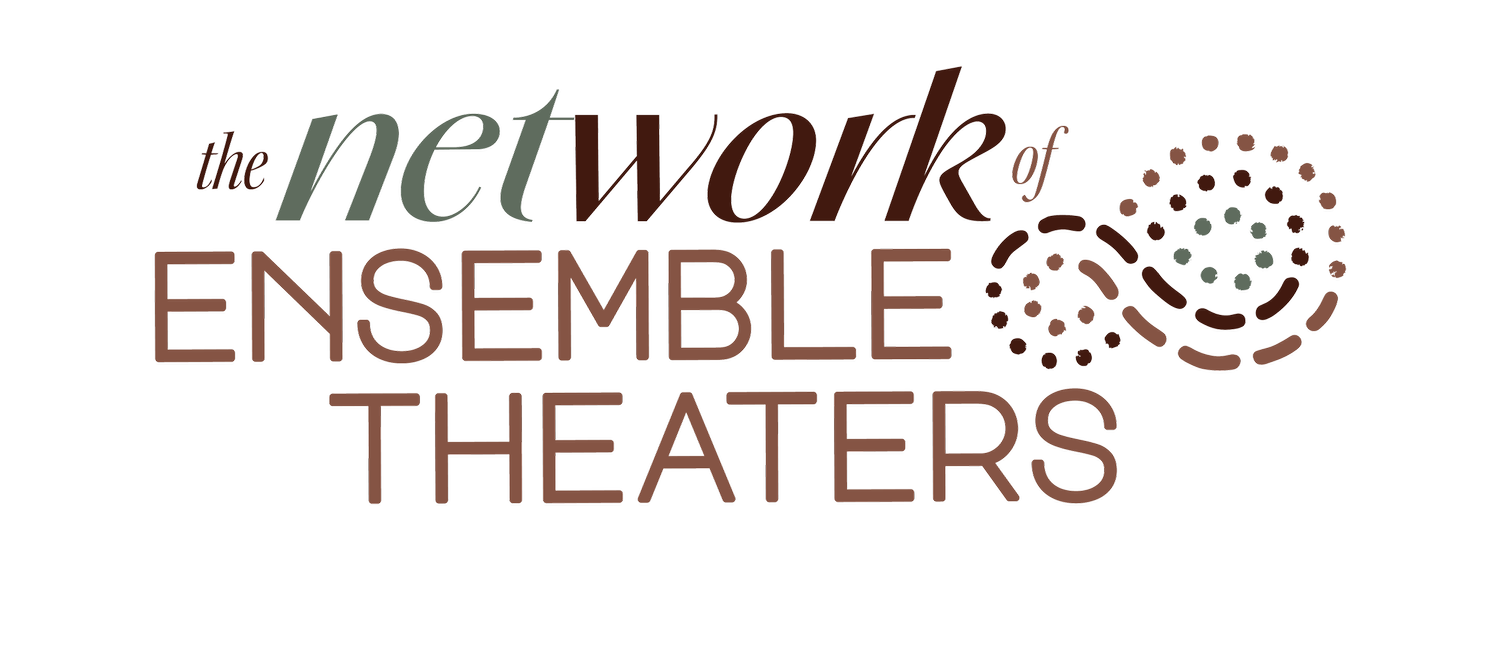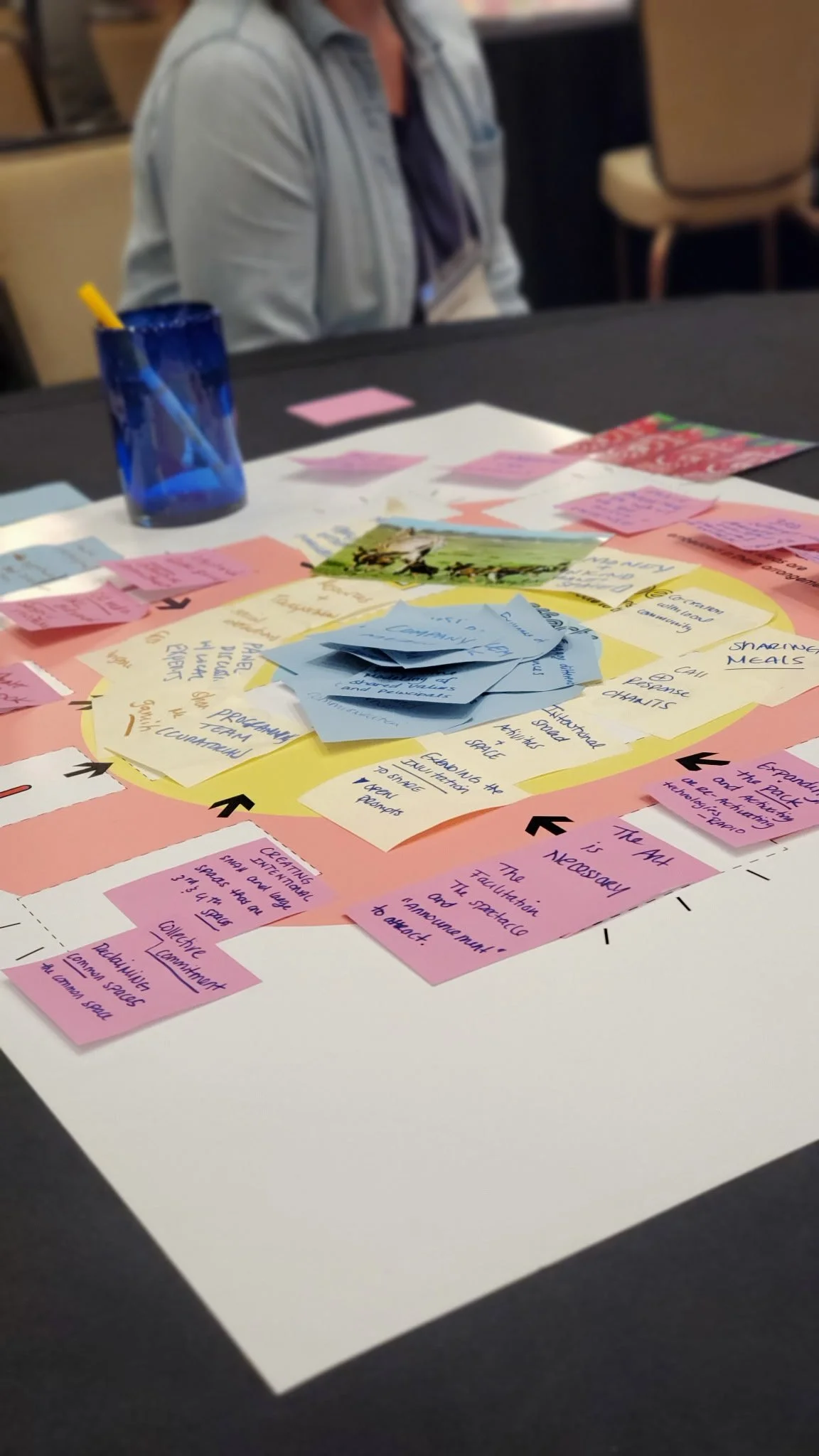The Underground Current: Rethinking Connection, Power, and How We Move Together
Reflections from the National Performance Network 2025 Conference
Early in October Monica, Nathalie and I went to New Orleans for the NPN Conference, Stormshaping. We stayed in a beautiful apartment that felt like a retreat that became our thinking space; we'd come back between sessions and work, rest, let the ideas settle into our bodies instead of just our notebooks.
On one of the last nights, my dear friend, co-conspirator, and fellow artEquity facilitator, Lauren Turner Hines, ED of the André Cailloux Center for Performing Arts & Cultural Justice where I am a very proud board member, came over after the Mondo Bizarro showcase at Catapult, and we sat up talking about how we find each other across all this distance. How we're all out here doing this work in different cities and we keep having to reinvent connection. She was talking about kin networks, about how we build and sustain them, and I kept thinking about something from earlier in that week:
Sage Crump had quoted filmmaker Haile Gerima:
"Language matters less than who is in charge of the thought system."
And I felt the skies open in that moment. This wisdom is sacred. This wisdom is a guide for all of us to stop letting our movements get caught in the trap of the limitation of language over intention and action. Shifting the word is not more important than interrogating or honoring a commitment to a thought system.
All weekend, people kept saying things that opened mental portals. Things like: Water is a currency. Intra-diasporic sharing. Underground current. Mobility is necessary. At first, they felt like poetry. But sitting with Lauren that night, I started understanding them as infrastructure.
Here is the one I want to build a future pathway on: Water is a currency. Which means the value isn't in the holding, it's in the motion. Water that stays still becomes undrinkable. You can't bank water. You can't invest it and wait for returns. It has to move to stay alive, and when it moves it feeds everything it touches. The currency is in the circulation itself, not in what you can extract from it. I am asking myself and all of us if this idea of circulation is what and how we should be building our governance structures, fundamentally.
So what happens when you build an economy on circulation instead of accumulation? When the goal isn't to have more but to move better? We keep trying to make our organizations "sustainable" which usually means figuring out how to hold onto resources longer. But what if sustainability isn't about holding but about flowing? What if an organization that can't hold water isn't failing, it's just built for a different kind of economy?
At Catapult, Mondo Bizarro has solidarity economy embedded in the infrastructure. Not added on. Built in. Which means the space can't operate without mutual aid, it's load-bearing. And I keep thinking: what would it mean if mutual aid was load-bearing everywhere? Not a nice thing we do when we can afford to, but the thing the whole structure depends on to stand? You'd have to build completely differently. The architecture would have to change. You couldn't just retrofit it.
From We Are The Soil workshop, Sara Makeba Dase said, “Let us remember we descend from folks who transmitted Spiritual knowledge across continent and ocean.” Intra-diasporic sharing. Diaspora usually carries loss in it; scattered from home, separated from origin. But what if diaspora is actually an advanced distribution system? What if being scattered means you can reach more ground, feed more soil? Mycelium works because it's dispersed. The network is stronger because there's no center. If you take out one node, the system doesn't collapse because the intelligence is distributed throughout.
What if that's what we are? Not isolated theaters trying to connect, but nodes in a system that's already connected beneath the surface. Already sharing intelligence through the underground network. What if the work isn't to simply build the network as large as possible or to a brazen visibility but to recognize the interdependence we are already engaged in and honor the sacred necessity of this to our collective survival now and always. I believe as the chaos around us escalates we must not get distracted into believing we must focus more closely on our own organizations but instead deepen our commitment to standing in the gap with each other. Understanding that we must work together closer with more transparency, more vulnerability, and without fear of the rumbling. We must trust what's already flowing through and stay in, with and for each other.
Back to Gerima, language matters less than who's in charge of the thought system. Language matters less than who's in charge of the thought system. Language matters less than who's in charge of the thought system…what if there's a thought system that doesn't operate on “in charge” at all? Remember the mycelial network is something we are obsessed with BECAUSE the intelligence is distributed? The whole system thinks together.
Mobility is necessary is also on repeat as we return from Bulbancha. Mobility as in: nothing can stay still. Knowledge that stays in one place, one form, becomes dogma. Resources that pool become power. Even good ideas, if they can't move and transform, become rigid. Become walls instead of water.
Maybe mobility isn't about access but, survival. The thought system has to stay in motion or it calcifies. It has to keep circulating, keep changing form, keep feeding new ground. Which means you can't control it. You have to release it and trust it will come back transformed, feeding something you didn't anticipate, showing up in forms you didn't design.
That's scary. Or maybe just unfamiliar? Or perhaps unpracticed? We've been taught that if you're not controlling something, someone else will control it for you; but what if there's a third option? What if you can be part of a system that's moving but not controlled by anyone? What if the circulation itself is the governance?
I keep thinking about everyone we saw at the conference - people from Teada, Pangea, Dan Froot and Co, all the NIDEC folks. Our connection is so far beyond institutional. We might not be in consistent contact. But something is still moving between us. Some shared understanding about how to work, how to be in room together, that's traveling through the underground network. Not because anyone's managing it but because mycelium share resources and information without needing coordination.
What if we're already operating as a distributed intelligence system and we just don't have language for it yet? What if the reason we keep trying to build formal networks and feeling like they're not quite right is because we're trying to create structure for something that works better without structure? The underground current is already flowing. We're trying to build pipes for water that move better through soil.
The conference was called Stormshaping. Storms are what happens when systems reach a certain pressure, a certain heat. You can't stop a storm. But if you're part of the weather system, your movement changes how the pressure builds, where it releases. You don't control the storm but you're not separate from it either.



